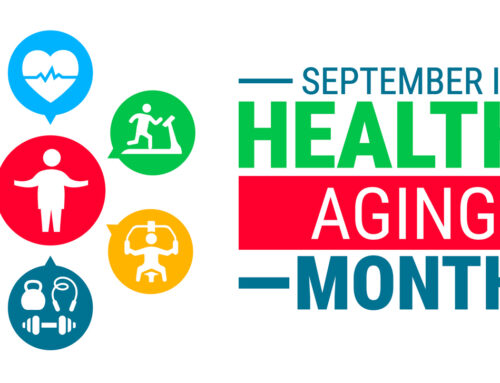Hearing loss is a common condition among the elderly, affecting millions worldwide. As people age, natural changes in the ear’s structure and function can lead to diminished hearing abilities, significantly impacting quality of life. This article explores the causes of hearing loss in the elderly, its effects on their daily lives, and various management options available.
Causes of Hearing Loss in the Elderly
Hearing loss in the elderly is usually categorized into two main types: sensorineural hearing loss and conductive hearing loss. Sensorineural hearing loss is the most common form in older individuals and results from damage to the inner ear or auditory nerve. Conductive hearing loss, on the other hand, occurs when sound waves cannot efficiently travel through the outer or middle ear due to blockages or physical damage.
Several factors contribute to hearing loss in the elderly:
- Presbycusis: This age-related hearing loss occurs gradually over time and is caused by changes in the inner ear and auditory nerve. It generally affects both ears and leads to difficulty hearing high-pitched sounds.
- Noise-Induced Hearing Loss: Prolonged exposure to loud noises, whether occupational or recreational, can damage the delicate hair cells in the cochlea, leading to hearing loss over time.
- Earwax Buildup: As we age, the earwax becomes harder and more likely to accumulate, potentially causing a blockage and temporary hearing impairment.
- Ototoxic Medications: Certain medications, including some antibiotics, chemotherapy agents, and nonsteroidal anti-inflammatory drugs (NSAIDs), can be toxic to the ears and may cause or worsen hearing loss.
- Chronic Health Conditions: Conditions such as diabetes, high blood pressure, and cardiovascular disease are associated with an increased risk of hearing loss. These diseases can affect the blood flow to the auditory system, leading to hearing problems.
Impact on Daily Life
Hearing loss in the elderly can have a profound impact on their daily lives, affecting communication, social interactions, and emotional well-being.
- Communication Challenges: Older adults with hearing loss may struggle to understand conversations, particularly in noisy environments. This can lead to frustration, misunderstandings, and social isolation.
- Cognitive Decline: Studies suggest a strong link between untreated hearing loss and cognitive decline. Seniors with hearing impairments are at higher risk of developing dementia due to the increased cognitive load required to process sounds and speech.
- Mental Health: Hearing loss can contribute to feelings of loneliness, anxiety, and depression. The inability to engage in meaningful conversations may lead to withdrawal from social activities and reduce overall life satisfaction.
- Safety Concerns: Hearing loss can affect a person’s ability to detect important sounds such as alarms, approaching vehicles, or verbal warnings, increasing the risk of accidents and injuries.
Management and Treatment Options
While hearing loss in the elderly cannot always be reversed, it can often be managed effectively to improve quality of life. Here are some common treatment and management strategies:
- Hearing Aids: These small electronic devices amplify sound and are one of the most common solutions for age-related hearing loss. Hearing aids come in various styles and offer features such as noise reduction, directional microphones, and wireless connectivity.
- Cochlear Implants: For individuals with severe hearing loss who do not benefit from hearing aids, cochlear implants may be an option. These surgically implanted devices bypass damaged parts of the ear and stimulate the auditory nerve directly.
- Assistive Listening Devices (ALDs): Devices such as amplified telephones, personal amplifiers, and TV listening systems can enhance hearing in specific situations, making communication easier for those with hearing impairments.
- Communication Strategies: Learning new ways to communicate can help elderly individuals cope with hearing loss. This includes using visual cues, reducing background noise, and speaking clearly and at a moderate pace.
- Regular Hearing Checkups: Regular hearing screenings are important, especially for seniors. Early detection of hearing problems can lead to timely interventions and prevent further deterioration.
- Medications and Surgery: In cases of conductive hearing loss due to ear infections, fluid buildup, or other medical conditions, treatment options may include medications or surgical procedures to restore normal hearing.
Preventive Measures
While some hearing loss in the elderly is inevitable due to aging, there are steps that can be taken to prevent or delay the onset of hearing problems:
- Protect Your Ears: Limiting exposure to loud noises by wearing ear protection in noisy environments can help prevent noise-induced hearing loss.
- Manage Chronic Conditions: Controlling health issues such as diabetes and hypertension can reduce the risk of hearing loss.
- Maintain Ear Hygiene: Regular cleaning and professional checkups can prevent earwax buildup, which may contribute to hearing loss.
- Healthy Lifestyle Choices: A balanced diet, regular exercise, and avoiding smoking can support overall ear health.
Conclusion
Hearing loss in the elderly is common, but it doesn’t have to lead to a diminished quality of life. With proper management, including the use of hearing aids, assistive devices, and communication strategies, many seniors can continue to lead active and fulfilling lives. Early intervention is key, so regular hearing screenings and preventive care should be a priority for all older adults.
If you or someone you know is interested in care management or home healthcare services in South Florida, FirstLantic can help. We are locally owned and operated, providing our patients with the highest quality in-home care services in Fort Lauderdale (Broward County), as well as in-home care services in Delray Beach (Palm Beach County), North Miami (Miami-Dade) and Jupiter (Treasure Coast) since 2000. Click here to contact us.
 AVAILABLE 24 HOURS A DAY/7 DAYS A WEEK
AVAILABLE 24 HOURS A DAY/7 DAYS A WEEK Careers
Careers







